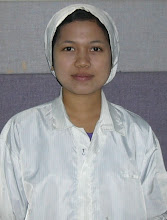Fibromyoma is a fairly common condition causing benign tumors to grow inside and around the uterus of many women during the childbearing years. These uterine fibroids affect an estimated 30-50% of all women, although some studies show that tumors may occur in as many as 80%. Most women afflicted with this health issue experience little or no symptoms, so the condition often goes undiagnosed.
Fibromyoma is the clinical name for the presence of non-cancerous tumors on or inside of the uterus. There are several types of tumors affecting an unknown number of women. Internally, there are 3 types: Intracavitary, Intramural, and Submucous. Externally, the lesions are referred to as either Subserous or Pedunculated.
The symptoms caused by Fibromyoma depend upon the type of tumor, and its size. A Pedunculated lesion appears to be attached by a string on the outer wall of the uterus; it is dying off by having its blood supply strangled away. This process causes pain in the abdomen. A Subserous tumor generally is painless, but if it grows large enough to press into other organs, it can cause great discomfort.
Internal tumors cause different symptoms, some of which are harder to diagnose. One or more can make fertility difficult. Too many lesions inside uterine walls might make pregnancy impossible. Other symptoms involve extra-heavy and painful menstrual cycles, a condition known as "Menorrhagia".
About 2/3 of tumors are not large enough to be detected during a routine pelvic exam. Due to this, and the absence of symptoms, the real number of Fibromyoma cases may never be known. The estimated 30% - 50% is a very uncertain number. It is suspected that women of certain ethnicity have higher risks of lesions, but this is likely based much on the lack of detection being more frequent in some groups than others.
Tumors rarely occur in women under the age of 20. They are also known to diminish in women after menopause. It is believed that the cause is hormonal changes, particularly in estrogen. The tumors are most likely to occur in women during pregnancy, or while taking birth control pills. Less than 1% of all lesions are malignant, and those are often detected because they develop after menopause.
Several studies have been performed in order to determine if Fibromyoma may be a hereditary disorder. As of now, no evidence has been uncovered supporting suspicions of genetic relationships. Many women do believe that they have inherited their disorder. It is probably more likely that women who know they have at least one female relative with Fibromyoma will ask their Gynecologists to check specifically for this problem, thus leading groups of related women to know they have tumors.
Even though tumors may occasionally cause pain, most of them are completely absent of symptoms. Without symptoms and with inadequate detection, uterine fibroids usually are left undiscovered throughout a woman's life. Without proper statistics, experts may never be able to say specifically how many women are affected by Fibromyoma. Even so, it is still the leading reason for Hysterectomies. In fact, it is the study of removed reproductive organs that have shown evidence of higher numbers of cases, perhaps as many as 8 of 10 women.
Read more about uterine fibroids treatment options by visiting at PCOSandFibroids.com. You will find information also about PCOS and ovarian cyst symptoms and treatments.








